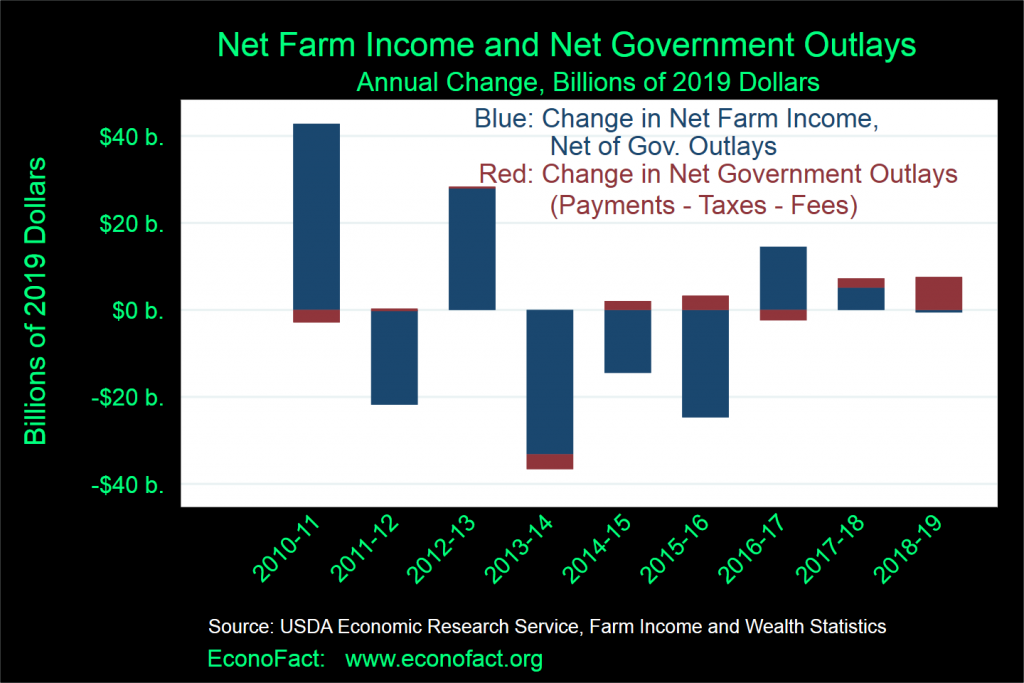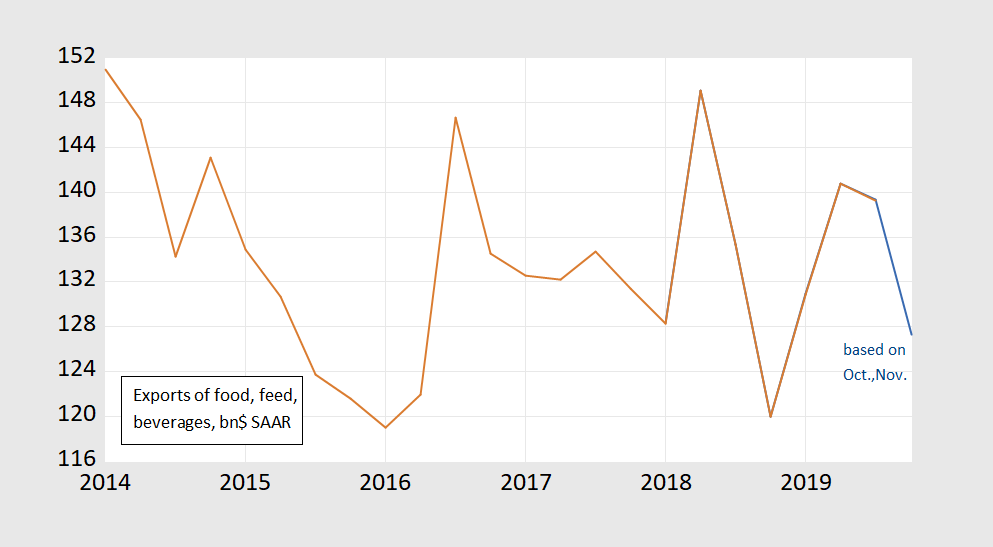By Menzie Chinn and Bill Plumley, at EconoFact, posted a few minutes ago:
U.S. agriculture has been caught in the tit-for-tat of the trade wars. Retaliation by China, Canada, Mexico, Turkey and members of the European Union to tariffs imposed by the Trump administration have taken a bite out of U.S. agricultural incomes. Tariffs on imports of steel and aluminum in the United States have also raised costs for machines, equipment and structures used by the agriculture sector. Agriculture incomes would have shown no growth in 2019 but for massive and unprecedented federal assistance. Even with this assistance, however, the agriculture sector shows signs of stress, with a rise in debt, a decrease in solvency and an increased number of bankruptcies.
Were it not for Federal government support, farm value added would’ve been flat going from 2018 to 2019.
Source: Chinn, Plumley, EconoFact, original source data: USDA ERS.
As for agricultural exports (NIPA definition), nominal values in 2019 look to be similar to 2018.
Figure 2: Exports of food, feed and beverages from NIPA (brown), and from trade release (blue), all in bn$ SAAR. Source: BEA, BEA/Census, and author’s calculations.


Socialism!
It remains unclear how the deal will impact soybean exports although presumably they will go up. There seems to be serious doubt that China will be able to inctease imports from US by $100 billion per year even if it tries.
Some items I did see i WaPo reporting today on the deal is that China will buy more beef, pork, and infant dairy formula from the US. On the latter, well, On Wisconsin!
On soybean prices, I have read that they fell in the wake of the announcement of this deal, even as many expect sales of soybeans from the US to China will increase, but apparently not as much as was being hoped for or expected. I am curious why this is, although I am not all that surprised.
the “Phase One” deal was a total capitulation by Trump. He climbed down on the proposed tariffs because he knew he was going to lobo Mize the economy more than he has done so already. the Chinese only promised more purchases of U.S. goods. However, I remember getting exited by the promises by the Japanese to open the economy to increase purchases of U.S. goods. In fact, the trade deficit with Japan never shrank.